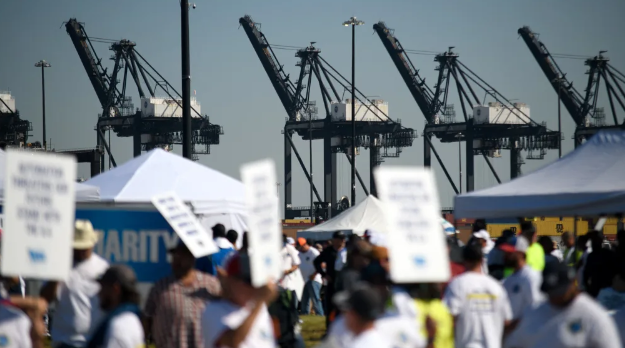The Economic Ripple Effect of the Dockworkers Strike

The ongoing dockworkers strike is having a significant impact on the global and domestic economy, as disruptions to major ports lead to delays in the supply chain and increased costs for businesses. These strikes, which involve thousands of dockworkers at key shipping hubs, have halted the movement of goods, particularly imports and exports critical to industries such as retail, manufacturing, and agriculture.
One of the immediate consequences of the strike is the delay in the flow of essential goods. As shipping containers pile up at ports, retailers are finding it difficult to restock shelves, leading to shortages that could affect consumers, particularly ahead of peak shopping seasons. The lack of imported goods, from electronics to raw materials, is also causing production slowdowns for manufacturers who rely on these shipments to maintain their operations.
The economic ripple effect extends beyond just delays. The strike has driven up shipping costs, as companies are forced to find alternative routes or pay premium prices to expedite shipments. These increased costs are often passed on to consumers, leading to higher prices for everyday products.
Moreover, the agricultural sector is feeling the pressure, as perishable goods are delayed at ports, risking spoilage and financial losses. Farmers who depend on timely exports face significant revenue hits, further destabilizing an already volatile sector.
As negotiations between dockworkers and shipping companies continue, economists warn that prolonged strikes could push inflation higher and disrupt global trade, leaving both businesses and consumers to shoulder the burden.





